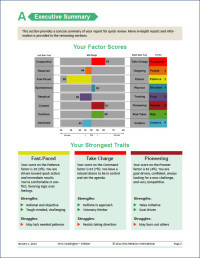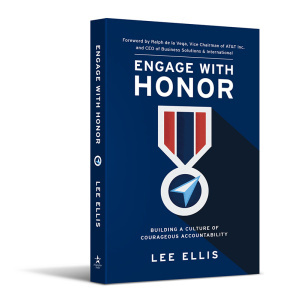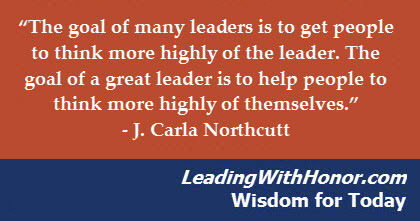Lee Ellis's Blog, page 262
September 21, 2016
4 Toxic Habits That Are Ruining Your Relationship or Team – New Article from Lee Ellis
 Interview by Candice Jalili on LOVE HURTS via Elite Daily
Interview by Candice Jalili on LOVE HURTS via Elite Daily
Maybe you’re stubborn. Or a bad listener.
Maybe you act passive-aggressively when your partner irritates you — or maybe, you’re a little bit of all of these things.
Just as we all have great habits that make us the lovely, wonderful people our partners are so lucky to have found, we also have some bad habits that our partners could probably do without.
But which ones are really doing our relationships the most harm?
Lee Ellis, a human behavior expert and author of Engage with Honor, has spent years observing various relationships (and even his own marriage), to identify the four most toxic habits that can ruin your relationship.
Read along for some eye-opening revelations and advice on how to correct these damaging behaviors:
Refusing to listen.
“We see the world from our viewpoint and our position,” says Ellis. “We don’t think that there might be more than one way to look at or address a situation.”
A lot of this inability to see from your partner’s point of view stems from a failure to listen. “It’s a really toxic problem because you’re not able to connect with the other person,” Ellis says.
In fact, in a survey of hundreds of leaders in corporate America, Ellis found that, when it came to describing their best working relationships, these heads kept citing the same quality over and over again: “The idea of listening — being heard, being seen, being noticed, being accepted by the other person,” he says.
This principle can be applied to romantic relationships as well. And since listening will make your partner feel heard, it’s definitely a habit worth working on. So, take the time to do it.
“By listening, you’re actually giving [your partner] a great gift: Respect,” says Ellis.
Making assumptions.
One of our most toxic habits is assuming that our partner automatically understands what we’re trying to say. But most times, they don’t.
It’s crucial “to clarify, rather than assume the other person knows what you know, sees what you see, has heard what you’ve heard,” says Ellis.
Most of us are in the habit of assuming our partner understood exactly what we were trying to say during that big fight. But this is where you’re making a major mistake.
You need to take the time to make your point of view clear so as to ensure that the two of you are on the same page.
Getting in your own way.
For about 10 to 15 years of his marriage, Ellis tried to make his wife be more like him.
That is, until one day, the couple had their personalities assessed. When they compared their results, he realized that he and his wife were total opposites in nearly every single personality trait.
So, what did he do? Well, he had to learn to accept her as-is.
We’ve all experienced the desire to make the people we care about be just like us: Enjoy the same hobbies as us, laugh at the same things as us, communicate like us, etc. But sometimes, we go so far as to make the toxic conclusion that the things that make them different from us are “wrong.”
Instead, you should learn to accept your partner for exactly who he or she is. And, actually celebrate their differences, rather than look at them as negatives.
“Learn to accept your partner for exactly who he or she is, and actually celebrate their differences.” [Tweet This]
To celebrate them, you have to work on first understanding your partner’s personality. Ellis even has a little remix of the golden rule for this: Do unto others as they would like to be done unto.
Meaning: Instead of assuming that your SO would like to be treated the way you would like to be, take the time to really get to know them and the way they would like to be treated.
“It’s a more specific way to show respect for someone,” Ellis says.
Being stubborn.
Stubbornness is funny because it can be an extremely good quality — it gives us the perseverance to keep going even after we fail, which is a necessary habit to have if you want to succeed in certain areas of your life, like school and your career.
But, it can start to be a problem when it works its way into your relationship.
“Stubbornness can be a very special kind of perseverance, but when you get so invested in having to be right, the relationship really gets undermined,” Ellis says.
You can see stubbornness in action when you look at the different ways people act it out: There are passive aggressive people (who tend to withdraw and ice their partner out during conflict), active aggressive people (who tend to be extremely vocal and critical during conflict) and people who are a mix of both tendencies, says Ellis.
It’s important for you to recognize what type you are and what type your SO is.
“When you get so invested in having to be right, your relationship gets undermined.” [Tweet This]
For example, if your guy is passive aggressive and you’re active aggressive, he’s not going to get over the problem very easily and is also probably going to respond by pulling away and withholding affection.
Now, if you’re an active aggressive person, this is going to drive you INSANE. You’re going to want to give into your natural tendencies, call him out for being distant and push him to engage in an argument.
These behaviors stem from stubbornness — you get stuck in the belief that you are 100 percent right, and therefore, keep trying to prove your rightness to your partner through your behavior.
So, how do you fix this? Well, you just have to stop being so dang headstrong and realize that there really is a chance that you could both be right.
“You just take ownership of much more than you think you should have to take,” says Ellis.
Identify what you did that would possibly make your partner upset (again, this comes back to understanding how your partner would like to be treated), and apologize for doing it.
Then, all you have to do is say, ‘I’m sorry’,” in order to diffuse the negative energy.
When you find the confidence and the courage to do that, Ellis promises that, most times, your partner will also feel comfortable admitting they’re at fault, too.
Of course, there’s a chance your SO could be a bully and keep coming at you even after you apologize. If that’s the case, you need to realize that the problem is more with them than it is with you.
But, for most couples, when you say “I’m sorry,” it will usually take all of the negative energy out of a situation.
CJ
All Relationships Need an Understanding of Natural Behavioral Differences
 Lee Ellis and his team have used Leadership Behavior DNA (LBDNA) to help thousands of leaders and teams understand their unique leadership strengths and struggles to better, more cohesive and successful people working together towards a common goal.
Lee Ellis and his team have used Leadership Behavior DNA (LBDNA) to help thousands of leaders and teams understand their unique leadership strengths and struggles to better, more cohesive and successful people working together towards a common goal.
Download a free sample and report and learn more about Training and Certification Services to use LBDNA with you or your team.


September 20, 2016
Overlooking Accountability Can Trip Up Your Startup
Need advice on launching a successful startup business? Lee shares his leadership expertise in this article from AlleyWatch.
Please Read on the AlleyWatch website and share your comments – thank you!


September 19, 2016
Get Over 10 Valuable Resources when you buy multiple copies of ‘Engage with Honor’
Please consider joining Lee in sharing the Engage with Honor message through buying bulk copies!
Order your copies now for free access to these exclusive features:
 ORDER UP TO 9 COPIES AND RECEIVE THIS PACKAGE:
ORDER UP TO 9 COPIES AND RECEIVE THIS PACKAGE:
Free Leading with Honor 1-Page Mini Report
Discussion Guide for Groups
6 Coaching Videos by Lee Ellis
10 Video Clips Explaining each chapter
A Case Study on Balancing Results and Relationships
A copy of The Honor Code to Share with Your Team and Colleagues
The Courage Challenge Card – A Tool for Maximum Employee Engagement
Free Monthly Leading with Honor Coaching sent to your inbox
Special Discounts on Leading with Honor Live Training for your team or organization
ORDER 10 OR MORE COPIES AND RECEIVE THIS PACKAGE:
Free Leadership Behavior DNA Assessment (A $125 Value) – View a Sample
All of the other features listed above.


September 18, 2016
On This Day in Leadership History for September 18, 2016
On this day in leadership history in 1997, Ted Turner, U.S. Media magnate, announced that over the next ten years he would give $1 billion to the United Nations. What’s the leadership lesson? Making money can be very rewarding, but being generous and sharing it can be a reward on an entirely different level. What is your philanthropic passion?

(AP Photo/John Bazemore)
Ted Turner – Wikipedia


September 17, 2016
Are Touchy-Feely Leaders In or Out? Watch Lee’s Coaching Video Clip
Did you see last week’s coaching video where Lee talks about how leaders can “connect with the heart”? Great advice whether you’re a touchy-feely leader or not. Please watch and share your comments – thank you!


September 16, 2016
Leading with Honor Wisdom for Today, September 16, 2016
“The goal of many leaders is to get people to think more highly of the leader. The goal of a great leader is to help people to think more highly of themselves.” – J. Carla Northcutt


September 15, 2016
As leaders in life and work, what does connecting with the heart look like?
As leaders in life and work, what does connecting with the heart look like?
Typical heart-connecting actions include listening, supporting, encouraging, believing in, and almost any action to connect to the deepest needs of another person in a positive, respectful, and honoring way.
Why does it work?
Every human being has deep desires to be valued, heard, seen, respected, trusted, feel important, feel as though they are contributing to something important, and believe they’re doing something that has purpose and meaning. We want to know that we count for something. These heart level connections mentioned above communicate this type of value and lift the spirts. The idea is succinctly captured in this quote –
“The goal of many leaders is to get people to think more highly of the leader. The goal of a great leader is to help people to think more highly of themselves.” – J. Carla Northcutt
What is the Impact?
Heart connections energize people with positive emotions that give hope and confidence.
They empower people to perform better and work harder.
In short, they enable us to produce more and better results.
Please share your comments and experience too – thank you
Read this month’s entire article, “Running Towards Heart Connections in Leadership”

Lee Ellis with former U.S. Olympian and Professional Runner, Jeff Galloway.


September 14, 2016
Consumer Expert, Clark Howard – “Without accountability the culture goes downhill in a hurry.” See Inside
Consumer expert and radio show host, Clark Howard, clearly identifies the problem in this article—“without accountability the culture goes downhill in a hurry.”
Please read the entire article and share your comments in this post. You can also read more stories about courageous accountability in Lee’s new book, Engage with Honor.


September 13, 2016
Fill-in-the-Blank – “I’m most engaged with a task or project when my leader does the following:___________________.”
Fill-in-the-Blank – “I’m most engaged with a task or project when my leader does the following:___________________.”
Please share your answers in this post – thank you!


September 12, 2016
New Life FM Event – Leaders in Local Broadcasting
Lee was honored to speak at the NewLifeFM banquet last Saturday. And, he was also excited to be with old friends, host Joe Emert, and emcee Steve Moore, bringing back many memories working with them in Christian radio in the 1990’s. Grateful for their dedicated leadership in local radio broadcasting.
Link – New Life FM









